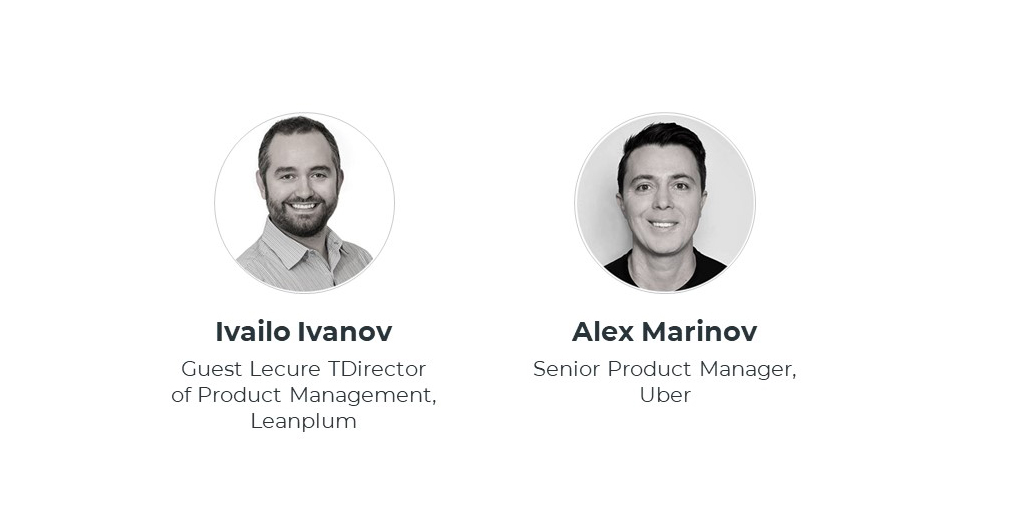


The Product Manager role is somewhat new (especially here, in Bulgaria). That’s why we wanted to give you some context and answer the most frequently asked questions about this profession. In the text, we use the opinion of two seasoned Product Managers, who are also trainers at the Telerik Academy Upskill Product Management course - the first-ever comprehensive Product Management training in Bulgaria.
Just a quick note before we start - the admission for the program is now opened. So, if you find this profession interesting for you, apply by August 7.

Search Google for a definition of a Product Manager. Here is what will happen. The search engine will return over half a million pages. Some of the leading results are people asking What exactly do a PMs do?
What makes this profession's simple explanation so difficult? Well, the role usually varies depending on various factors.
If we use the official definition, the PMs are responsible for finding products that will best answer the needs of a predefine target group of clients.
“The PM defines the strategy that takes an idea to a successful product addressing customers needs. The PM is the link between different departments in the company - he or she is an expert on the product. When there is no PM in the company, the role is divided between different departments. The result is a narrow vision for the development of the product,“ explains Ivailo Ivanov, guest lecturer at Telerik Academy Upskill Product Management and Director of Product Management at Leanplum.
This PM is critical for the success of every product. This is the person who has a full grasp of the goals of the product, and communicates them with all parties involved - marketing, design, developers, engineering, finance, and others.
This confusion is normal, but there are fundamental differences. The PM often communicates with Marketing and Sales because they have valuable knowledge that can help establish (or reconsider if needed) the strategy for the product's development. For example, they can provide budget information, buying persona, etc. Also, each department can have a different vision for the product. It's among the PM's responsibilities to listen to all parties, including and most importantly clients, and based on all factors to set a single direction. “And of course, to assure all stakeholders that this is the best possible direction,“ adds Ivo.
To put it bluntly, the PMs are responsible for the product definition and strategy, while the Marketing Managers oversee the communications strategy and how to market the product to people. The role of the Project Manager, on the other hand, is more focused on the execution side and breaking down strategic plans into task-orientated initiatives.

Because of its complexity, there are a lot of skills and qualities that can help you become a successful PM. We can divide them into two main categories - technical (e.g., UX design, data processing, documentation, technical concepts) and soft skills. Depending on the company, one of these two categories can have a slight superiority, but both are important.
“My role as a PM at Uber is not so much Biz Dev and Sales related, but more a creative one. I work with different countries on various complex topics. Here qualities such as curiosity, patience, and collaboration with people are key. Also, the ability to take different perspectives into account is beneficial. Daily, I go through 10-15 calls with several teams from 20 to 200 people,“ shares Alex Marinov, guest lecturer at Telerik Academy Upskill Product Management and Senior Product Manager at Uber.
For PMs in the software industry, it's essential to have a solid understanding of software technologies and how and which of them must be used for a specific business model and product strategy.
The good PM can sell the product, define it in detail, knows the plan. The great PM can convey the idea to everyone in the company, so he or she doesn’t have to perform these extra duties.
Also, the great Product Manager always creates the product strategy based on data and not on opinions.
Like we said before, it depends on the company.
“If you have experience in the educational sector and you start working as a PM at Coursera, your experience will be more valuable for creating the road map of the products, compared to the experience in creating software for kitchen appliances, for example. The PM usually brings knowledge from the same industry,“ explains Alex.
And if, for example, the company’s clients are developers, you will be having trouble understanding them if you don’t have technical experience and knowledge.

Here we will let Alex and Ivo explain the process in their respective companies.
“Usually, the task for the job applicant is a Case Study on how to optimize a process. With this task, we want to see how the candidate thinks and how he or she structures the documentation. If we like it, we proceed with an interview. During the interview, the candidate meets with 4-6 people from various departments - design, data science, product engineering, sales, etc. After that, we make a decision,“ explains Alex.
“When we conduct an interview, we follow the Silicon Valley principals - we focus on skills, not experience. Also, we conduct a cultural fit interview, and we test the technical, business, and communication skills of the candidate. Is the technical part a problem for people with a business background? No, not in our case. We don’t require software engineering training for our PMs. For example, we had candidates with a marketing background who were able to show great results on the technical part of the interview because of their experience and understanding of the sector,“ adds Ivo.
Yes, we have 13 of the most renowned Product Managers, practitioners, and experts with the specific knowledge that is a must-have for a successful PM. For example, we have an experienced UX designer, financial specialist, marketing professional, among others.
The focus is on personalized education for each student. During the program, you will work in groups or individually on real-world products.
Yes, the first part of the program (see it in full here) focuses on research and idea validation. During the program, you will master the whole development process of a software product - from start to finish.
Ready to become a successful product manager? Learn more about our comprehensive Product Management training.

We are welcoming News UK and their partner Questers to our ever-growing partner network! To learn more about News UK and the role of junior talent in the company, we talked to Nainesh Mehta.
Read the story
Meet one of our newest partners - DHL Enterprise Software Solutions (ESS), part of the DHL Freight organization. Learn more about the company!
Read the story
Kristiyan Valev has always been curious and eager to learn new skills. He decided to apply for the program Telerik Academy Upskill UX/UI Design, and this decision led him to his new job as UX Designer at Audience Platform. This is his inspiring story.
Read the story